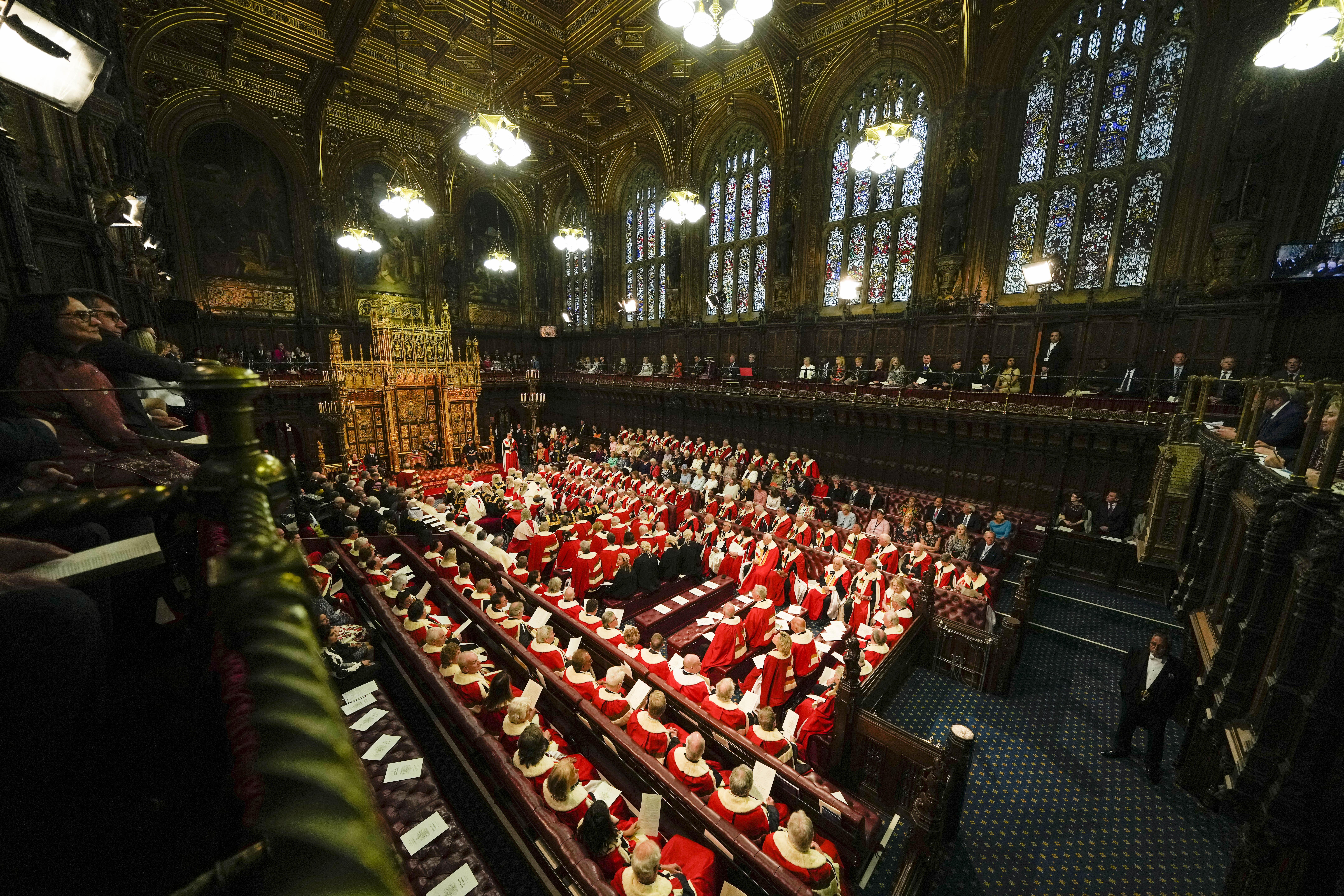House of Lords reform is not as straightforward as it may seem
Bold plans to reform the Lords have been announced before, only to be watered down or abandoned as they come into contact with the realities of life in Westminster, writes Andrew Woodcock

Gordon Brown’s report on the future of the UK earlier this week was 155 pages long and contained 40 detailed recommendations on everything from relations with the devolved governments in Scotland and Wales, to moving civil servants out of Whitehall and creating employment “clusters” around the country.
However, all most voters are likely to have remembered from it is that Labour will abolish the unelected House of Lords. And yet this is probably the proposal least likely to be implemented of all of Brown’s many ideas.
Sir Keir Starmer dutifully echoed the former prime minister’s judgement that Westminster’s second chamber is “indefensible” in its current form, and indicated it was something he’d like to do something about.
But he was careful not to commit definitively to abolition in Labour’s first term, saying only that it is an idea “capable” of being implemented within that timescale, as he sent the Brown report off for consultation.
And it was not long before Labour grandees began mounting a rearguard action against ditching the Upper House, with Lord Mandelson warning that abolition would not be “painless or simple” while Lord Blunkett pointed to the “gridlock” that so often gums up a US Congress made up of two elected chambers.
The reality is that bold plans to reform the Lords have been announced before, only to be watered down or abandoned as they come into contact with the realities of life in Westminster.
Tony Blair’s attempt to get rid of the hereditary peers in 1999 ended with a compromise allowing 92 to remain, and despite his huge majorities the Labour PM never went ahead with plans to introduce democratic elections. Likewise, Nick Clegg’s plans for a largely-elected chamber ran into the sand in 2012.
To many observers raised on democratic principles, the Lords seems an anomaly ripe for consignment to the dustbin of history. Surely, in any democracy worthy of the name, laws should be made only by those elected by the people for the task?
But the question then arises, if both Houses are to be elected, how do they differ from one another? Members of the new elected second chamber would not take long to decide that they have the same mandate from voters as MPs and an equal right to stand their ground in the wrangles that would inevitably ensue.
Current conventions allow the Lords to amend government legislation – which they do hundreds of times a year – but require them to accept defeat if the Commons rejects their proposed changes. What PM would want to create a new elected body without that constraint, especially when it is highly likely from time to time to be dominated by an opposition party?
Then there is the question of who would sit in the new chamber. Of course, there are always complaints when prime ministers reward their cronies and donors with a job for life in the Lords, but the Upper House also benefits from the expertise of a huge array of former industrialists, diplomats, judges, generals, trade union officials, doctors and scientists.
The fear of those opposed to an elected chamber is that few of them would want to stand for election, and the red benches would instead be filled with professional politicians who have not managed to secure a place in the more powerful Commons.
Any prime minister might find it difficult to sell to the electorate the idea of kicking out the likes of Lord Robert Winston or General Lord Dannatt, Baroness Beeban Kidron or Baroness Floella Benjamin to make way for another set of party apparatchiks to act as lobby fodder for the government.
The speaker of the Lords, Lord McFall, cautioned in a speech days after Gordon Brown’s intervention that any reform of the second chamber will inevitably change its role – and the more radical the reform, the more unpredictable the consequences.
He has called for further consultation in the hope of finding consensus on incremental reforms that would bring down membership from its current level of almost 850, which few in the Lords itself would disagree is excessive.
History tells us that, whatever is said now, reform of the Lords will never be as straightforward a task in government as it seems in opposition.
Yours,
Andrew Woodcock
Political editor






Join our commenting forum
Join thought-provoking conversations, follow other Independent readers and see their replies
Comments